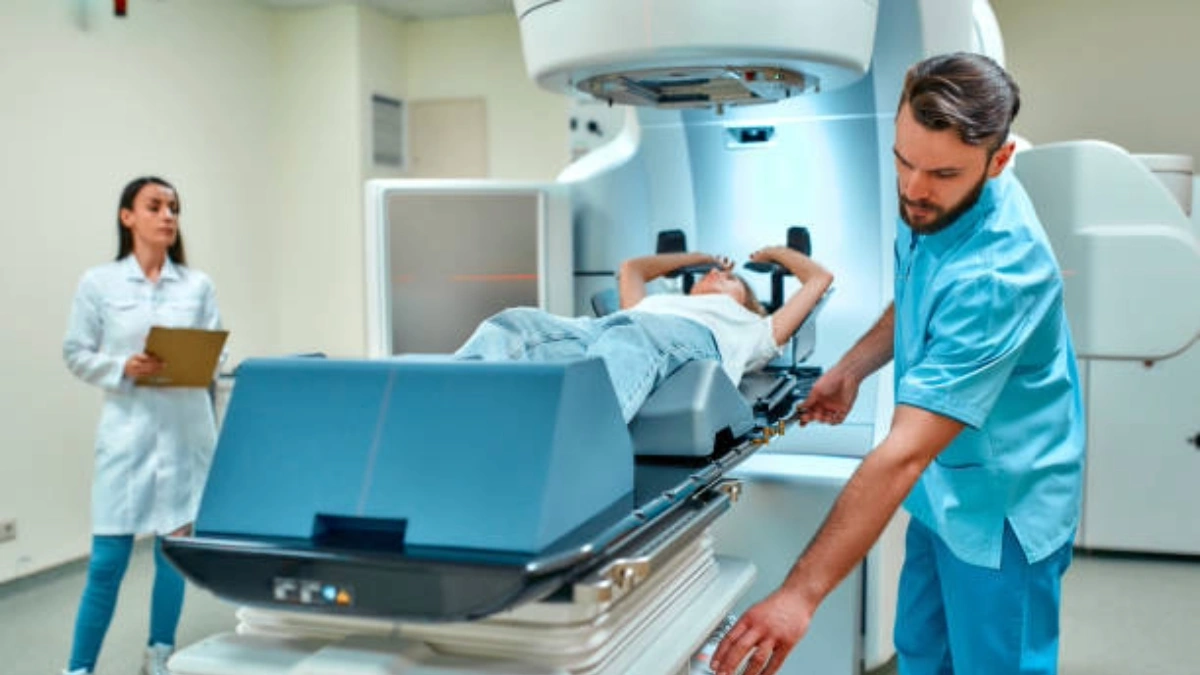Radiotherapy in Turkey has gained international recognition for offering advanced treatment options with considerable success rates. Furthermore, as a pivotal cancer treatment technique, it utilizes high-energy radiation, often via X-rays, to target and destroy cancer cells. Moreover, our facilities in Turkey, like the esteemed Avicenna International Hospital, employ state-of-the-art technology, enabling us to deliver precise treatment and exceptional patient care.
Types of Radiation Therapy in Turkey
Radiation therapy can be administered in various forms, tailored to meet the unique needs of the patient undergoing radiotherapy in Turkey. The primary types are:
- External Radiotherapy: This is the most common form, using a machine to direct beams of high-dose radiation at cancerous tissues from outside the body.
- Internal Radiotherapy (Brachytherapy): This involves placing radioactive materials directly inside or near the tumor. It offers localized high-dose treatment.
- Radioisotope Therapy: Radioactive substances are administered through injections, capsules, or liquids, allowing them to target cancer cells internally.
- Intrabeam Radiotherapy: Delivered during surgery for certain breast cancers, this technique allows high-dose radiation directly at the tumor site.
These methods are chosen based on the cancer type, location, and other individual factors when considering radiotherapy in Turkey.
Price of Radiotherapy Session in Turkey
Turkey is well-regarded for providing cost-effective medical care without compromising quality. In terms of pricing, radiotherapy costs vary depending on the treatment complexity, the technology used, and the facility’s expertise. Therefore, we recommend contacting Avicenna International Hospital to get detailed pricing information tailored to your specific treatment plan for radiotherapy in Turkey.
Preparation for Radiotherapy Steps
Preparation for radiotherapy in Turkey is crucial to ensure the effectiveness of the treatment. The usual steps include:
- Consultation and Evaluation: It starts with a comprehensive evaluation by a multidisciplinary team to determine the appropriate treatment strategy.
- Simulation and Planning: This involves imaging scans to map out the treatment area precisely.
- Custom Shielding and Positioning: Specialized equipment may be used to keep the patient still and to shield healthy tissues from radiation.
- Briefing on Side Effects and Management: Patients receive thorough guidance on potential side effects and how to mitigate them.
What Happens During Radiotherapy in Turkey
During a radiotherapy session in Turkey, patients usually lie on a treatment table while a radiotherapy machine targets the cancer with precision-guided beams. Sessions are generally short, ranging from a few minutes to an hour, depending on treatment specifics. Most treatments occur daily, from Monday to Friday, allowing for rest during weekends.
Post Radiotherapy
Post-radiotherapy care in Turkey involves regular follow-ups to monitor recovery and manage any side effects. Commonly, side effects may include skin irritation, fatigue, and temporary hair loss in the treated area, varying from patient to patient. In addition, our team focuses on delivering comprehensive support and rehabilitation services to ensure a smooth recovery for those who have undergone radiotherapy in Turkey.
Side Effects of Radiotherapy
While radiotherapy is an effective cancer treatment, it may cause side effects, primarily due to its impact on both cancerous and healthy cells. Common side effects or disadvantages of radiotherapy include:
- Sore Skin: Skin irritation, a change in skin color, and texture may occur within the treatment area.
- Fatigue: A common side effect, which may persist beyond the treatment period.
- Hair Loss: Limited to the treated area and usually temporary.
- Nausea and Vomiting: Especially common if the stomach is treated.
Our medical team in Turkey will provide strategies and medications to manage these side effects, ensuring patient comfort and well-being during their radiotherapy.
Coping with Side Effects
Patients are encouraged to communicate openly with their care team about any discomfort or changes they experience during radiotherapy. Available support in Turkey includes:
- Skincare Recommendations: Gentle care routines and suitable moisturizers to manage skin reactions.
- Fatigue Management: Includes adequate rest and light exercise as tolerated.
- Nutritional Advice: Maintaining a balanced diet with potentially adjusted meals to accommodate side effects.
- Support for Emotional Health: Counseling or support groups can offer much-needed emotional backing.
Emotional and Physical Support
Radiotherapy in Turkey can be a physically and emotionally challenging journey. We offer robust support systems, including access to counsellors and support groups, to help patients and their families cope with the treatment and its effects.
Radiotherapy vs. Chemotherapy
While both radiotherapy and chemotherapy are common cancer treatments, they differ in their approach and application. Radiotherapy utilizes high-energy radiation to target and destroy cancer cells within a specific area of the body. In contrast, chemotherapy involves the use of systemic drugs that circulate throughout the body to kill rapidly dividing cancer cells.
The choice between radiotherapy and chemotherapy, or a combination of the two, depends on the type and stage of cancer, as well as the patient’s overall health and treatment goals. Radiotherapy is often used as a primary treatment for localized cancers, while chemotherapy is more effective for treating cancer that has spread or metastasized to other parts of the body. In some cases, the two therapies are used in conjunction to enhance the effectiveness of the treatment.
Conclusion
Radiotherapy in Turkey, facilitated by Avicenna International Hospital, exemplifies world-class cancer care, characterized by advanced technology and a patient-focused approach. If you or a loved one are considering radiotherapy options, we warmly invite you to contact us for compassionate care tailored to your needs.
The cost of radiotherapy in Turkey typically depends on the treatment specifics and facility.
Radiotherapy uses high-energy radiation to damage the DNA in cancer cells, inhibiting their ability to replicate and leading to their destruction.







